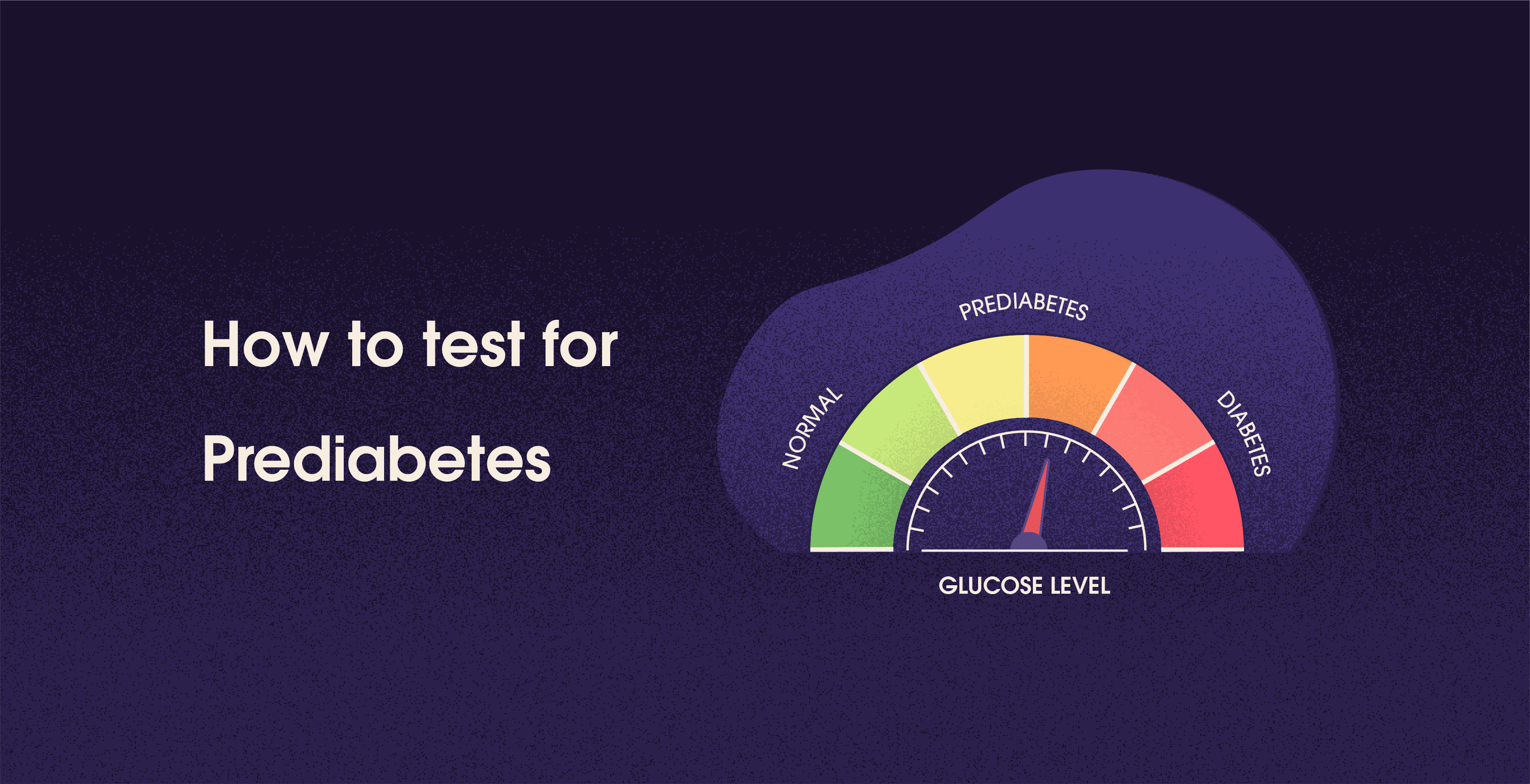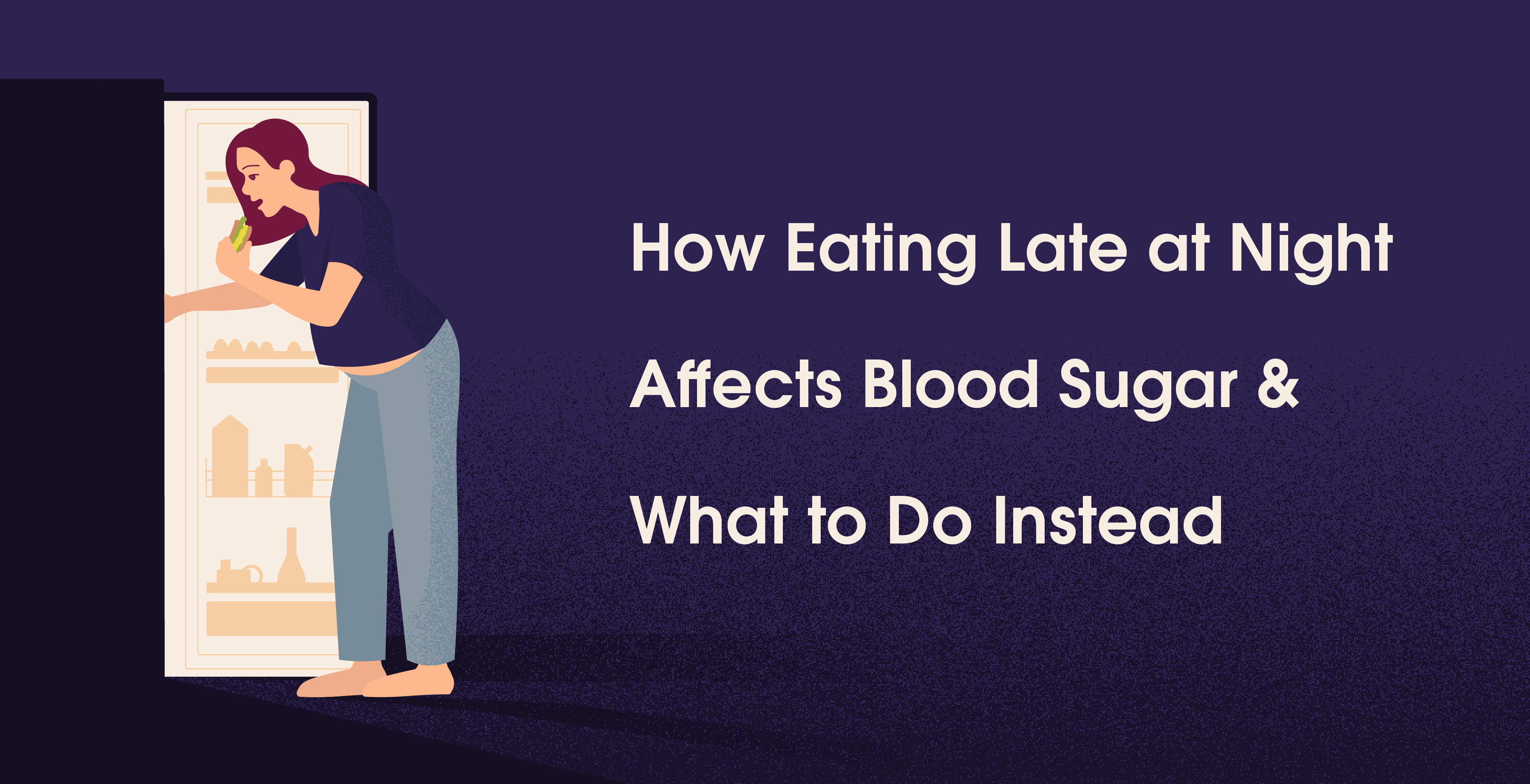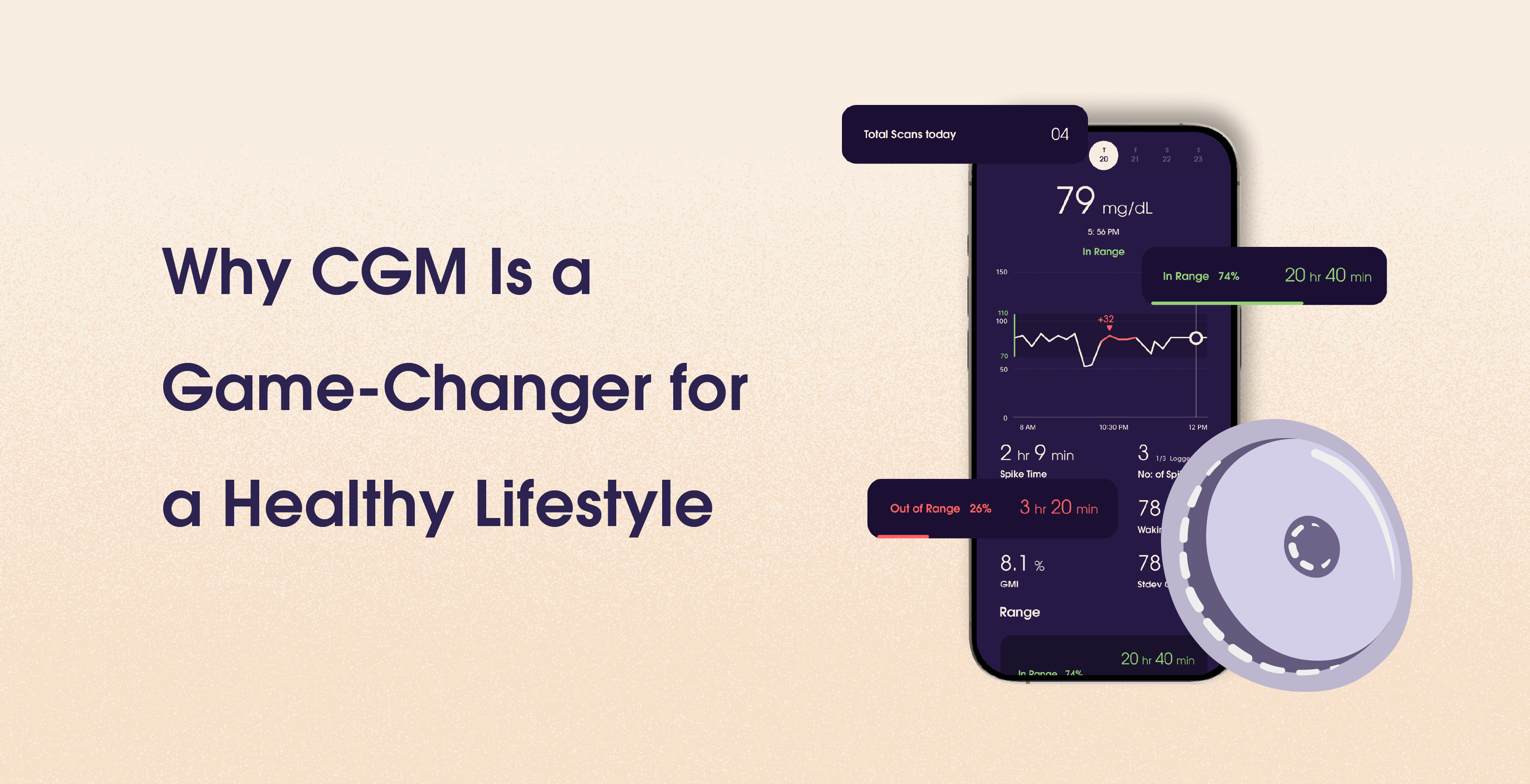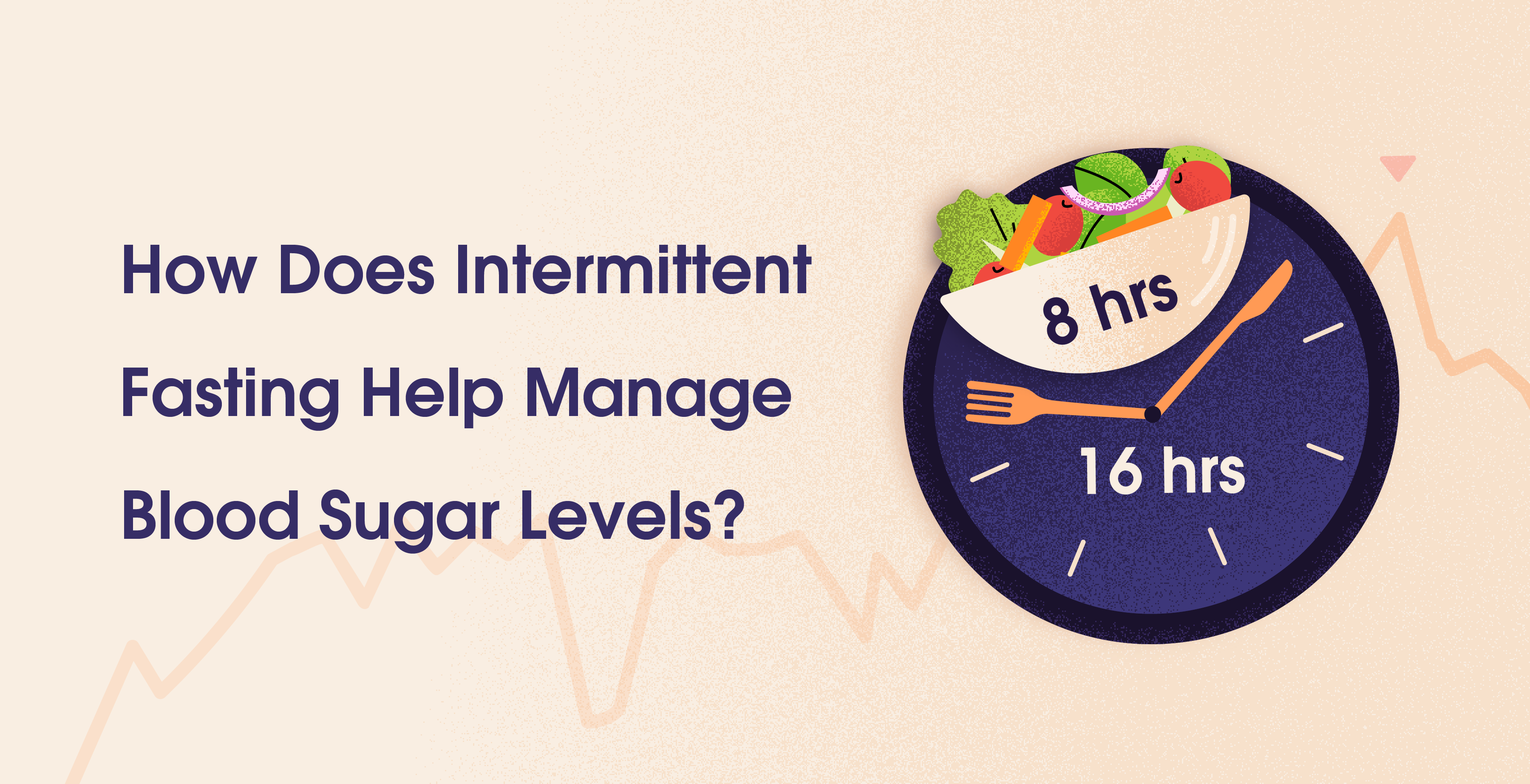How to Test for Prediabetes
Sep 23, 2024
Sayfali Rawlani



Table Of Contents
Introduction
Did you know? Over 463 million people worldwide have prediabetes. And making simple lifestyle changes can reduce your risk of developing type 2 diabetes by up to 58%.
Highlights
How to test for prediabetes?
Why is testing important?
When should I get tested?
What can you do?
Have you ever wondered what it means to have pre-diabetes? It’s like a warning bell that tells you that your body needs a little extra care. Imagine your body as a car. Just like how you check the engine and oil to keep the car running smoothly, similarly, you need to check on your body to make sure it is working well. One important thing to check is whether you might have prediabetes. So let’s dive into it and learn the ways to test for pre-diabetes.
How To Test Pre-diabetes?
Testing for pre-diabetes is finding out if there’s too much glucose in your blood. There are a few simple tests that doctors use to check the glucose level in your body. Here they are!
Fasting Blood Sugar Test
This test takes a sneak peek at your blood sugar levels early in the morning before you’ve had anything to eat or drink (except water) for at least 8 hours. The doctor will take a sample of your blood to see how much sugar is in your blood. If your sugar is higher (mention the normal range)than that level, you must start working on lowering your blood sugar levels because this is a sign of pre-diabetes.
HbA1C Test
This test is like a report card of your body. It actually shows how your body processed glucose in the past months (2 months to 3 months). This test is similar to the fasting blood sugar test but somehow different, the doctor will take a small amount of blood from your body to check your sugar level. If the A1C number is higher than usual (mention the ranges) - Be Cautious! It’s a sign of pre-diabetes.
Oral Glucose Tolerance Test (OGTT)
This test is like a sugar challenge for your body. First, you’ll have a fasting blood sugar test. Then, you’ll be given a drink - a special sugary drink (like a glucose concentrate). After waiting for an hour, the doctor will check your blood again to see how your body is handling all that sugar. If your blood sugar is high after the test, it could mean you have pre-diabetes.
Why Testing is Important?
You might have many questions in your mind like - Why you should test for prediabetes? Ok let’s look at a simple example- You are going for a long drive with the family to enjoy your weekend, and in the middle of the drive your check engine light comes on, and you stop at the nearest garage to get it checked, so that your trip is not effected and you get to enjoy the drive.
It’s the same with pre-diabetes, it serves as a warning sign and you must test for it and make healthy choices before it turns into type 2 diabetes.
And trust us, with small changes you will feel great and will see major changes in your body. You just need to maintain a healthy lifestyle like eating balanced meals, not consuming too much processed food, and exercise. These habits will help you in the long run.
When Should You Get Tested?
You should get tested for pre-diabetes if you:
Must Must Must! If you are over 45 years old
Have a family history of diabetes
Are overweight or obese
Have had gestational diabetes (diabetes during pregnancy)
Have high blood pressure or high cholesterol
Are physically inactive
What Can You Do?
If you or someone in your family thinks they might have pre-diabetes, don’t be afraid to talk to your doctor. It’s just like asking for directions when you’re lost. The doctor can help guide you on the right path to staying healthy.
Remember, knowing about pre-diabetes early gives you the chance to make choices that keep your body strong and healthy. So, take care of your bodies and keep that warning bell in check!
Introduction
Did you know? Over 463 million people worldwide have prediabetes. And making simple lifestyle changes can reduce your risk of developing type 2 diabetes by up to 58%.
Highlights
How to test for prediabetes?
Why is testing important?
When should I get tested?
What can you do?
Have you ever wondered what it means to have pre-diabetes? It’s like a warning bell that tells you that your body needs a little extra care. Imagine your body as a car. Just like how you check the engine and oil to keep the car running smoothly, similarly, you need to check on your body to make sure it is working well. One important thing to check is whether you might have prediabetes. So let’s dive into it and learn the ways to test for pre-diabetes.
How To Test Pre-diabetes?
Testing for pre-diabetes is finding out if there’s too much glucose in your blood. There are a few simple tests that doctors use to check the glucose level in your body. Here they are!
Fasting Blood Sugar Test
This test takes a sneak peek at your blood sugar levels early in the morning before you’ve had anything to eat or drink (except water) for at least 8 hours. The doctor will take a sample of your blood to see how much sugar is in your blood. If your sugar is higher (mention the normal range)than that level, you must start working on lowering your blood sugar levels because this is a sign of pre-diabetes.
HbA1C Test
This test is like a report card of your body. It actually shows how your body processed glucose in the past months (2 months to 3 months). This test is similar to the fasting blood sugar test but somehow different, the doctor will take a small amount of blood from your body to check your sugar level. If the A1C number is higher than usual (mention the ranges) - Be Cautious! It’s a sign of pre-diabetes.
Oral Glucose Tolerance Test (OGTT)
This test is like a sugar challenge for your body. First, you’ll have a fasting blood sugar test. Then, you’ll be given a drink - a special sugary drink (like a glucose concentrate). After waiting for an hour, the doctor will check your blood again to see how your body is handling all that sugar. If your blood sugar is high after the test, it could mean you have pre-diabetes.
Why Testing is Important?
You might have many questions in your mind like - Why you should test for prediabetes? Ok let’s look at a simple example- You are going for a long drive with the family to enjoy your weekend, and in the middle of the drive your check engine light comes on, and you stop at the nearest garage to get it checked, so that your trip is not effected and you get to enjoy the drive.
It’s the same with pre-diabetes, it serves as a warning sign and you must test for it and make healthy choices before it turns into type 2 diabetes.
And trust us, with small changes you will feel great and will see major changes in your body. You just need to maintain a healthy lifestyle like eating balanced meals, not consuming too much processed food, and exercise. These habits will help you in the long run.
When Should You Get Tested?
You should get tested for pre-diabetes if you:
Must Must Must! If you are over 45 years old
Have a family history of diabetes
Are overweight or obese
Have had gestational diabetes (diabetes during pregnancy)
Have high blood pressure or high cholesterol
Are physically inactive
What Can You Do?
If you or someone in your family thinks they might have pre-diabetes, don’t be afraid to talk to your doctor. It’s just like asking for directions when you’re lost. The doctor can help guide you on the right path to staying healthy.
Remember, knowing about pre-diabetes early gives you the chance to make choices that keep your body strong and healthy. So, take care of your bodies and keep that warning bell in check!
Table Of Contents
Table Of Contents
Table Of Contents
Read More


Mar 25, 2025
Sayfali Rawlani


Mar 20, 2025
Sayfali Rawlani


Mar 6, 2025
Sayfali Rawlani



Copyright © 2025 trst health. All right reserved.

